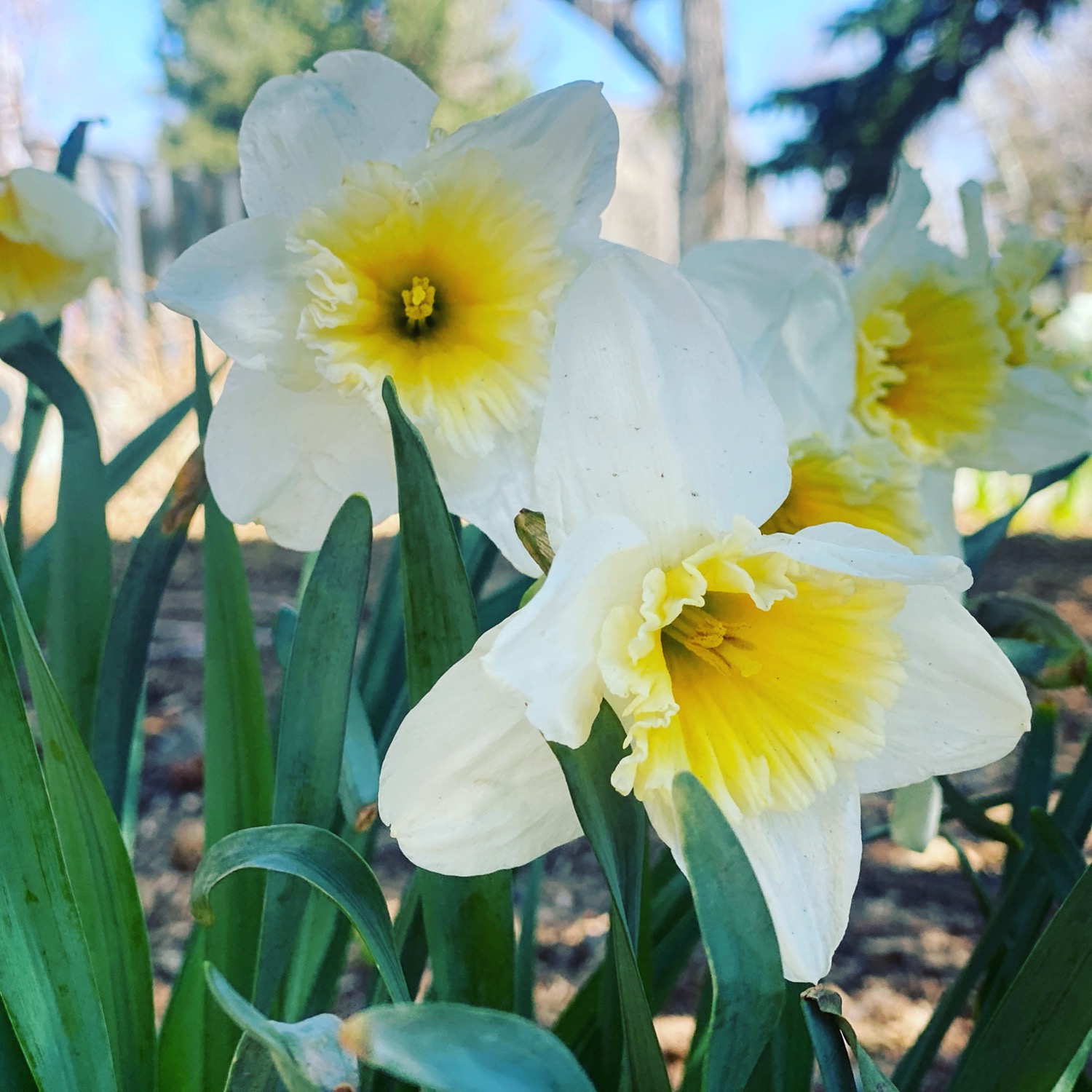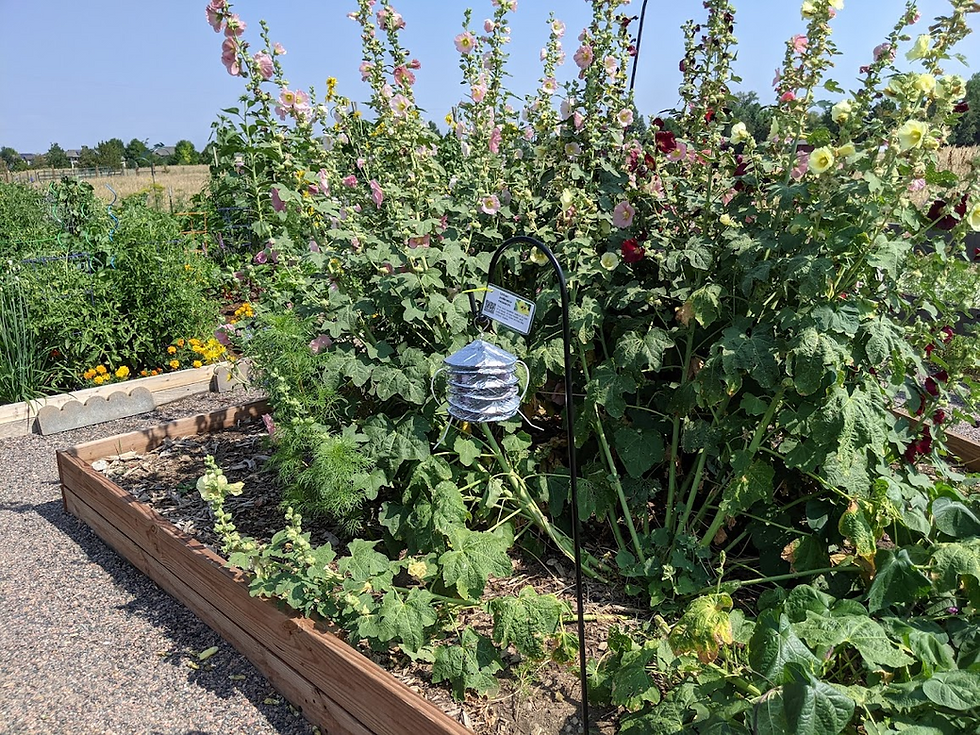How do our Pollinators feel about our Cucumbers?
- Rose Roots Garden Leader

- Jul 30, 2021
- 2 min read
Emma Briggs and a team of researchers are studying our cucumber plants in a 3-year study with North Carolina State University. We qualified for the study because we thankfully have several nearby bee hives and the bees spend a lot of time in our garden. If you happen to see the research team out at the garden or their mini weather station, say hello. below is more information about their study.
Emma reported during their first recent visit:
-We brought six cucumber plants to the site to measure visitation rates and cumulative pollination service. We placed our cucumbers next to ones already present in the garden so that bees could easily find them!

-We placed a mini weather station to record temperature and humidity data throughout the year.

-Malia recorded data on habitat characteristics such as ground cover, soil moisture, and floral resources.
-We pre-picked cucumber flowers to measure the amount of pollen bees deposit in a single visit to a flower.

We picked flowers from our cucumbers early in the morning before they fully opened. The bags are to ensure that no pollinators could land on the flower. When we found a bee on a male flower, we unbagged our flower and attached it to a modified ruler, offered it to the bee, and hoped that it would jump on! We will examine the stigmas of the bagged flowers to determine how many pollen grains were deposited during each individual visit.

We, and the Arvada Community Garden were among the gardens selected to participate in this study, outlined below.
Help scientists study the effects of urban heat on pollinator health!
Wanted: Farms and community gardens in and around Denver, CO, especially if they grow cucumbers.
Why: NCSU researchers are conducting a study to understand how urban warming impacts the diversity, abundance, health, and pollination services of bees. With this information, we hope to develop management strategies to support pollinators in the future as cities grow and the climate warms.
Why you: We need your help to gain access to bee populations that pollinate fruits and vegetables in and around Denver, CO.
When: The study will be completed over a three or four-year period starting in the summer of 2021.
What we’ll do: If you volunteer your farm or garden as a potential study site, we’ll ask some questions about your property to make sure we’ll be able to complete the study there. If everything looks good, we’ll visit your site several times during each summer, mainly in late July. On days that we visit your site, we’ll arrive early in the morning and take various measurements throughout the day. For example, we’re hoping to measure how often pollinators visit cucumber flowers, how thoroughly those flowers are pollinated, the body temperature and hydration of bees, and many other metrics. We will collect a limited number of bees for testing and identification, and we’ll leave a small temperature sensor on site throughout the study to monitor the local climate.
What you’ll do: Coordinate with us to determine the best dates to visit your property and let us know about any off-limits areas. Optionally, you might also choose to participate in citizen science activities such as completing pollinator counts and uploading iNaturalist photos.






Comments